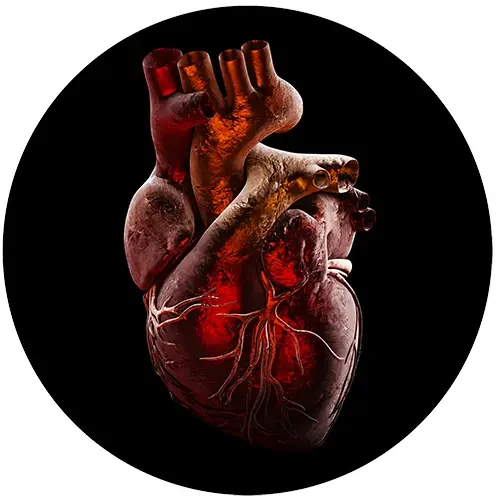What does it feel like to have palpitations?
Any irregular or unusually fast heart rhythm may be noticeable to you. You may feel pounding, or an irregular beat. Some people describe their palpitations as feeling like the heart "flip-flops" or "hiccups." You may feel the palpitations in your throat or neck. It may feel as though your heart skips a beat, and it may do this repeatedly. If you are experiencing unusually fast heartbeats, you will probably notice them - it can be a strange and alarming sensation.
Sometimes palpitations are accompanied by other symptoms, like sweating, light-headedness, nausea, shortness of breath, or even fainting. If this is the case, you should talk with your cardiologist sooner, not later!
What causes palpitations?
By definition, palpitations mean that you are experiencing some arrhythmias. That sounds alarming, but not all arrhythmias are dangerous. Not all require treatment.
Some of the things that can cause arrhythmias besides heart diseases include strenuous exercise and excess caffeine, alcohol, nicotine, or other drugs (including prescription, over-the-counter, and recreational drugs). Stress, anxiety, and lack of sleep can also cause arrhythmias. Dehydration, changes in your hormones, and low blood sugar can play a role. So can anemia or anything that causes low blood oxygen levels. It is not surprising that everyone experiences some palpitations at times!
HCM can also cause palpitations. There are several reasons for this. HCM affects the structure of the heart directly, by causing disarray in the heart muscle cells. That disarray makes arrhythmias more likely. Hypertrophy of the heart wall can also make arrhythmias more likely. HCM tends to lead to scarring (fibrosis) of the heart muscle, a major cause of arrhythmias. The extra work performed by the heart in HCM often causes the left atrium to become enlarged, and this makes atrial fibrillation more likely.
Treating palpitations
If you have palpitations that are new, talk with your cardiologist. Try to record them with a home heart monitor. Keep a daily log about when you get palpitations, what you are doing at the time, and what you have been consuming. All of this can provide essential information to your doctor.
Seek immediate medical attention if you are also experiencing weakness, lightheadedness, or confusion. Chest discomfort or pain in your arms, neck, jaw, or upper back are also reasons to seek medical attention. So are shortness of breath and a resting pulse of over 100 bpm.
HCM patients sometimes become acutely aware of the sensations of palpitations. This can be useful if it leads you to record your heart rhythm and talk with your doctor. It can also become a source of anxiety if you tend to worry about every palpitation. There is no simple rule telling you which palpitations to worry about, but talk with your doctor. Over time, hopefully, you will learn more about which palpitations deserve close attention.
Your doctor may prescribe use of a device like a Holter monitor, event monitor, or loop recorder, to help differentiate between a harmless arrhythmia and one that requires treatment. Treatment for palpitations depends on their cause.
If your palpitations are from certain arrhythmias, like atrial fibrillation, the doctor may prescribe anti-arrhythmic drugs or drugs to reduce your heart rate. Some arrhythmias can also be treated with catheter ablations, but these are usually considered only after medications have failed. Some arrhythmias - especially ventricular tachycardia - can be life-threatening, and may warrant an implantable cardiac defibrillator (ICD). If your doctor thinks your medications may be contributing to your palpitations, they may prescribe new medications.
If your palpitations are caused by lifestyle choices, you may need to make some changes. Alcohol can trigger arrhythmias in many people. So can caffeine and stimulant drinks. There is no general rule here: some people tolerate alcohol and caffeine in moderation, while others do not. You need to learn which is the case for you - and it may change over time. If you smoke, quit. Regular exercise can help to reduce palpitations. So can a low-fat diet. Keeping your blood pressure under control can also help. Stress can cause palpitations. While it is not very useful to advise someone to reduce stress in their life, there are relaxation exercises that may prove helpful.










